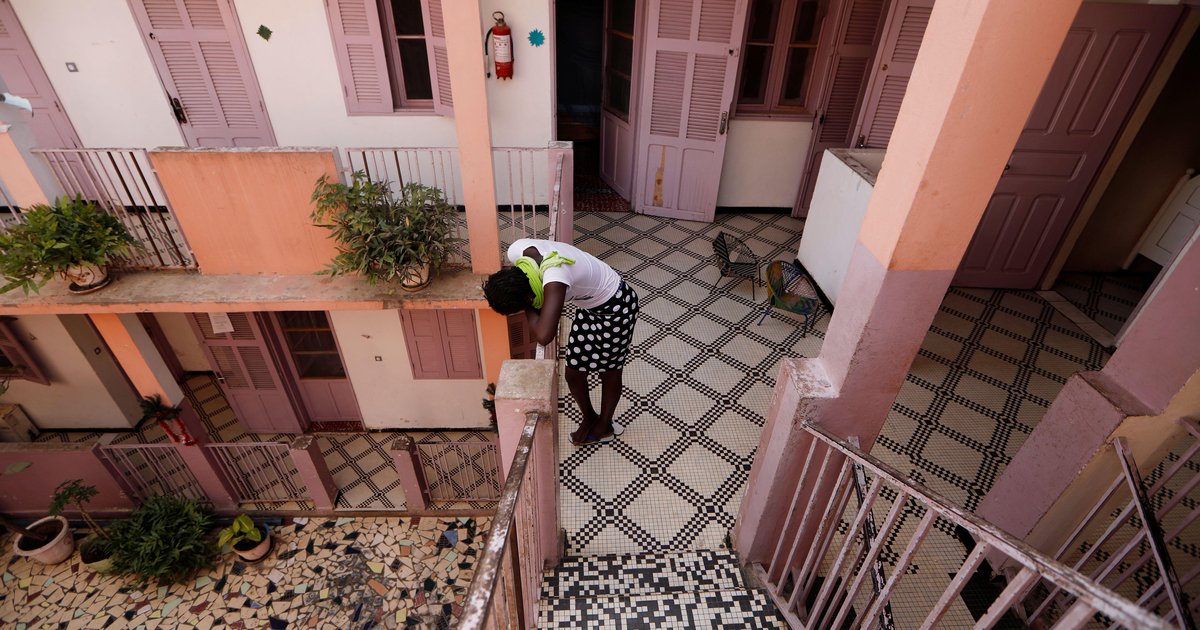Senegal failing to tackle misogyny amid growing violence against women

“If you ever have sex with a physically disabled woman, you will break the legs of any woman you sleep with next,” reads a post in Homme Choc, a private Facebook group set up by men in Senegal.
The group, whose name is French for ‘shocking men', was launched in 2019, in response to Femme Chic, another private Facebook group where women in Senegal talk about their lives in a patriarchal society and initiate fundraising activities to support each other.
Today, Homme Choc's membership has grown to more than 20,000 and includes many high-profile figures: journalists, artists, media executives, social media influencers, lawyers, and gender equality campaigners.
Misogynistic content from the group that was leaked in early November, including the post above, shows it does indeed live up to its name.
In the leaked posts and comments, members bond over lewd stereotypes about women with disabilities, albinism or nanism (restricted growth or dwarfism).
“Who here has tasted an albino woman? I hear they're great with their blonde pubic hair!” reads one such post. In another, a man says he picked up a woman with nanism who was living on the street and took her home, but now regrets it. “Homme Choc, I will never forgive you because you enticed me to do this,” he wrote. Other members replied with laughing emojis.
The messages from the group reveal how Senegalese society mistreats people living with disabilities, said fashion model Yama Ndiaye, a disability rights activist who lives with mobility challenges herself.
The group's posts are particularly worrying given the increasing number of femicides in Senegal over the past few years. Rape cases are also on the rise, despite the country having toughened its laws in 2020 to make rape a crime punishable by a minimum of ten years in prison and a maximum of life.
This year, at least eight Senegalese women were killed, some after being raped, most recently 17-year-old Fatou Samb.
Authorities are often indifferent or silent about these crimes, as Senegalese journalist and filmmaker Mame Woury Thioubou points out. This leaves women to rely on mutual aid initiatives such as Femme Chic.
No action taken
Following a social media campaign by the Collective of Feminists of Senegal and disability rights defenders, the leaked Homme Choc content was denounced by both men and women from many spheres of public life. But those with the most power to tackle pervasive misogyny remained silent.
Senegal's president Macky Sall, an active Twitter user, was called out several times on the social media platform by feminists urging him to say something, but did not respond – even though he was about to host the African Union's second summit on “positive masculinity”.
In contrast, in May, Sall tweeted in support of leading Senegalese footballer Idrissa Gana Gueye, who was criticised for refusing to play in an anti-homophobia match in France.
Despite multiple complaints from Senagalese feminists, Facebook has taken no action against Homme Choc – in fact, the group's membership appears to have grown since the scandal broke.
“We reported to various teams [at Facebook]. The West Africa team and the emergency response. Facebook has yet to get back to us, showing how little these platforms really do. We know key contacts, but still nothing is done,” one feminist told openDemocracy.
A representative from Facebook's parent company, Meta, said the social media giant is investigating Homme Choc after being alerted to the page by openDemocracy.
This “Eyes on Trafficking” story is reprinted from its original online location.
 ABOUT PBJ LEARNING
ABOUT PBJ LEARNING
PBJ Learning is a leading provider of online human trafficking training, focusing on awareness and prevention education. Their interactive Human Trafficking Essentials online course is used worldwide to educate professionals and individuals how to recognize human trafficking and how to respond to potential victims. Learn on any web browser (even your mobile phone) at any time.
More stories like this can be found in your PBJ Learning Knowledge Vault.
EYES ON TRAFFICKING
This “Eyes on Trafficking” story is reprinted from its original online location.
ABOUT PBJ LEARNING
PBJ Learning is a leading provider of online human trafficking training, focusing on awareness and prevention education. Their interactive Human Trafficking Essentials online course is used worldwide to educate professionals and individuals how to recognize human trafficking and how to respond to potential victims. Learn on any web browser (even your mobile phone) at any time.
More stories like this can be found in your PBJ Learning Knowledge Vault.
